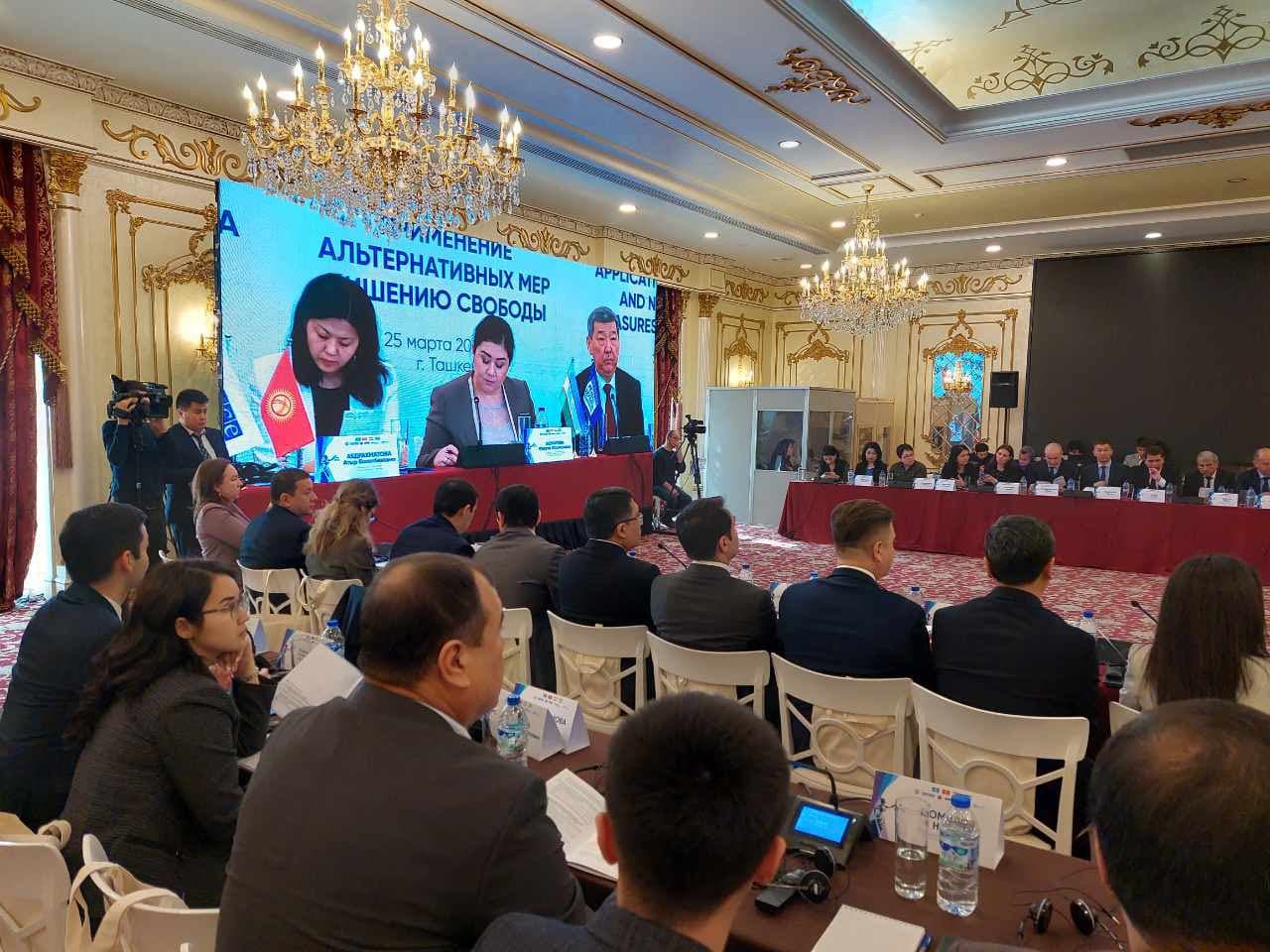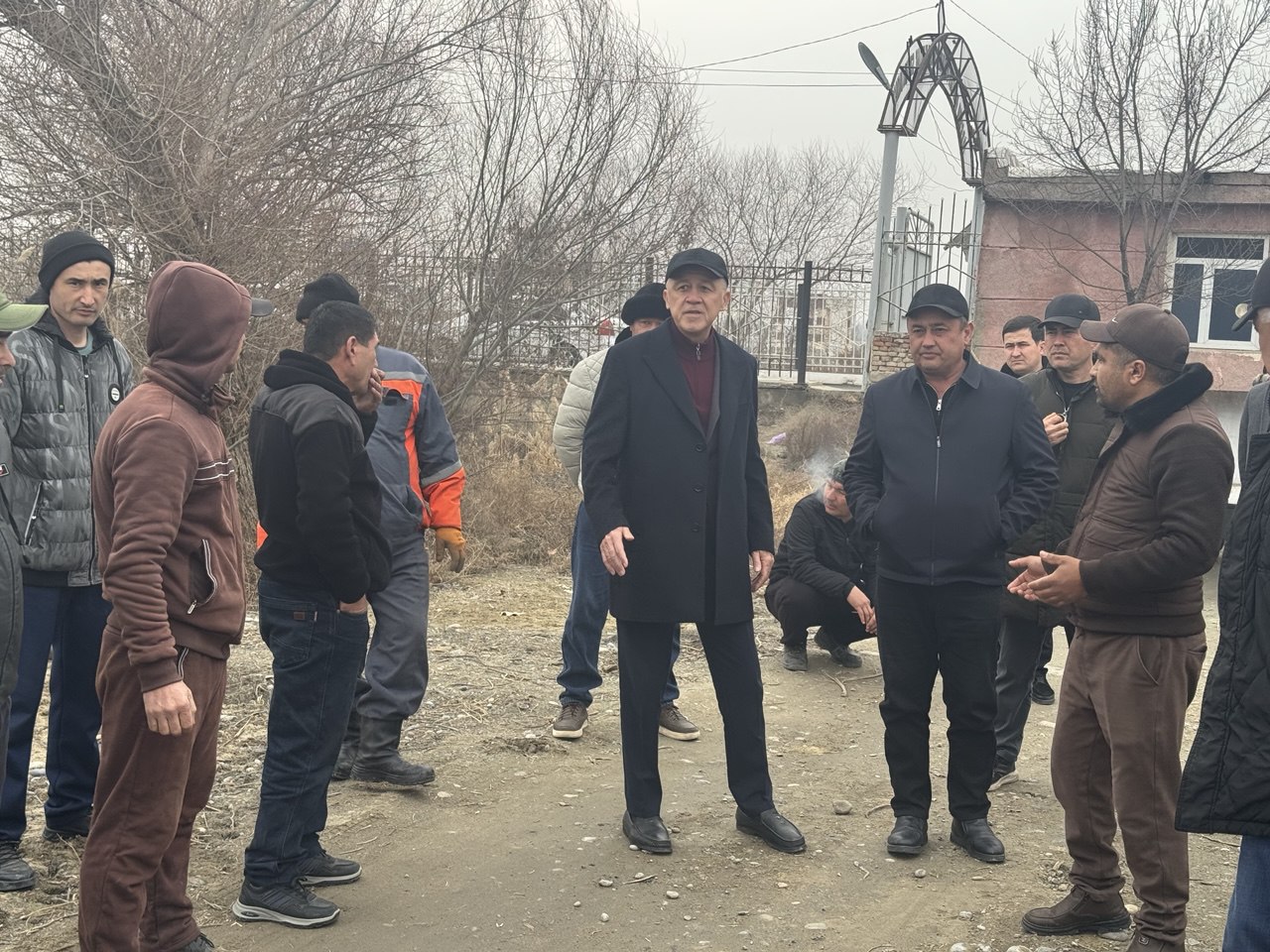The purpose of organizing this international conference within the framework of the project "Strengthening the Rule of Law in Kyrgyzstan, Tajikistan and Uzbekistan" is to study existing practices and exchange experience in the application of alternative measures of deprivation of liberty in these countries.
It should be noted that the project "Strengthening the rule of law in Kyrgyzstan, Tajikistan and Uzbekistan" has been implemented since 2021, and within its framework, the methodological framework for the imposition of criminal punishment was developed, examined the practice of imposing alternative penalties and their application, and carried out regional events on the topic “Imposing criminal liability not related to deprivation of liberty in criminal proceedings” by judges, representatives of law enforcement agencies and employees of the Ombudsman in various regions of the Republic, work was organized to create methodological recommendations and proposals were made to improve legislation.
The international conference was attended by about 100 international and local experts, and members of the Senate and the Legislative Chamber, representatives of the Constitutional Court, Supreme Court, Prosecutor General's Office, Ministry of Internal Affairs, Anti-Corruption Agency, Ministry of Justice, Civil Society Institutions, University of World Economy and Diplomacy, Tashkent State University of Law, deputies of the Youth Parliament, media and representatives of international organizations from the UN Mission in Uzbekistan, UNDP Representative in Uzbekistan, OHCHR Regional Office in Central Asia, United Nations Office on Drugs and Crime and Ombudsmen of Kazakhstan, Kyrgyzstan Tajikistan, Turkmenistan and representatives of State bodies working in the field of human rights.
The fact that this conference on the results of the project "Strengthening the rule of law in Kyrgyzstan, Tajikistan and Uzbekistan" was organized in Uzbekistan among the States of Central Asia can be considered as a practical result of human rights reforms in our country.
Speakers at the event noted that in recent years, the country has undergone a reform of the judicial system, as well as the introduction of non-custodial penalties, the creation of a new system to effectively monitor the behavior of persons under the control of probation units, by which a decrease in cases of repeated commission of crimes by these persons is achieved.
According to data, in 2021 in our country 71% of all convicts were sentenced to punishments not related to deprivation of liberty in criminal cases.
According to the international conference, deprivation of liberty is one of the most common forms of punishment, the application of which can lead to a number of negative consequences, including the deterioration of the material situation of the convict's family, the breakdown of his family, as well as the acquisition of the convict's negative skills in committing crimes and repeated commission of criminal acts.
During the event, presentations by experts from Uzbekistan, Kyrgyzstan, Tajikistan and Kazakhstan were heard.
It is noted that in order to ensure the enforcement of sentences (orders) of courts on non-custodial sentences, special attention should be paid to the nature of crimes, the degree of public danger, as well as the personality and behavior of convicts. At the same time, work is required on social adaptation and career guidance to prevent relapse by the supervised.
The international conference was divided into sections. It discussed international experience, practice and legislation on the application of alternative non-custodial measures in judicial proceedings, as well as the role of the Ombudsman in ensuring the rights of prisoners in penitentiary institutions.
On the same day, the the Authorized Person of the Oliy Majlis for Human Rights (Ombudsman) Feruza Eshmatova met with the newly appointed Ombudsman of the Kyrgyz Republic Atyr Abdrakhmatova. During the dialogue, the main areas of cooperation were identified, such as improving the legal literacy of the population, promoting the civil, political, economic and social rights of migrants.
Press Service of the Authorized Person of the Oliy Majlis for Human Rights (Ombudsman)


































